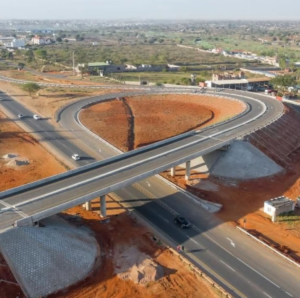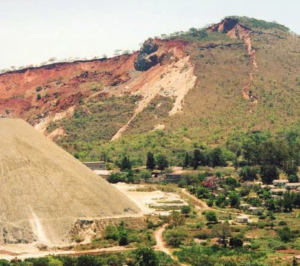CHINA’S EXPLOITATION OF ZIMBABWE: A WAKE-UP CALL FOR THE NATION

It is shocking to learn that over 85,000 Chinese nationals are living and working in Zimbabwe. They are not immigrants; they are here to exploit our country’s resources, then return home with profits. These individuals are part of a larger plan that has turned Zimbabwe into a source of raw materials for China’s booming industries, with little to no benefit for ordinary Zimbabweans.
China has targeted Zimbabwe for its vast deposits of minerals and resources. Our country is rich in iron ore, coal, limestone, chrome, lithium, and gold—resources that China needs for its factories. Yet, instead of developing our nation, the Chinese are moving their polluting industries here to dodge international trade restrictions and environmental regulations.
For example, Zimbabwe has the world’s largest chrome deposits, worth an estimated $100 trillion. Despite this, we allow China to export millions of tonnes of raw materials without adding value locally. Our lithium, which could transform our economy, is shipped to China in concentrate form. The Chinese take not only the lithium but also other valuable minerals hidden in the ore. Meanwhile, we cheer at the $4 billion this trade brings, ignoring the billions more we are losing.
The gold industry is another area of concern. A quarter of our gold output is reportedly sent to China, yet we have little knowledge of how this is happening. Chinese companies dominate the small-scale mining sector, with massive investments in machinery. They flout environmental laws, leaving behind scarred landscapes that resemble war zones.
The exploitation began in earnest with the discovery of the Marange diamond fields in 2008. Chinese companies, in partnership with Zimbabwe’s military elites, extracted billions of dollars in diamonds. Yet, the local communities in Marange remain impoverished, with no proper roads or infrastructure. The Chinese corporations and their Zimbabwean allies grew wealthy, leaving the people of Marange to suffer.
Chinese investments in infrastructure are another example of exploitation. Their projects are focused solely on their needs, not Zimbabwe’s development. For instance, China is planning a massive port in Mozambique to export Zimbabwean resources. At Hwange, Chinese companies control coal production, building power plants for their use while our electricity remains unreliable and expensive.
The Belt and Road Initiative, which China promotes as a development plan, often involves overpriced infrastructure projects financed with high-interest loans. The Hwange Power Station and railway lines in Kenya and Ethiopia are examples of projects that benefit China more than the host nations.
Zimbabwe is at a crossroads. Our government must realize that China is not here to help us but to extract as much as possible for its benefit. Unlike Australia, where resource exports to China are conducted at market rates, Zimbabwe’s resources are being taken at bargain prices. This is a direct result of weak governance and corrupt officials who prioritize personal gain over national interests.
To stop this exploitation, Zimbabwe must set strict terms for Chinese investments. They must employ Zimbabweans, follow environmental regulations, and invest in industries that add value locally. Infrastructure projects should address our country’s needs, not just China’s.
China must pay fair prices for our resources, and the proceeds must be used to uplift Zimbabweans. We cannot allow a situation where Chinese companies bribe officials to secure deals that harm our nation. Transparency and accountability are essential.
The continued plundering of Zimbabwe’s resources cannot be allowed to go on. This is a wake-up call for our leaders and citizens. Our relationship with China must be redefined to ensure mutual benefit, not exploitation. If we fail to act, future generations will inherit a country stripped of its wealth and opportunities.
It is time for Zimbabwe to stand firm and demand what is rightfully ours. Only then can we secure a better future for our nation.



